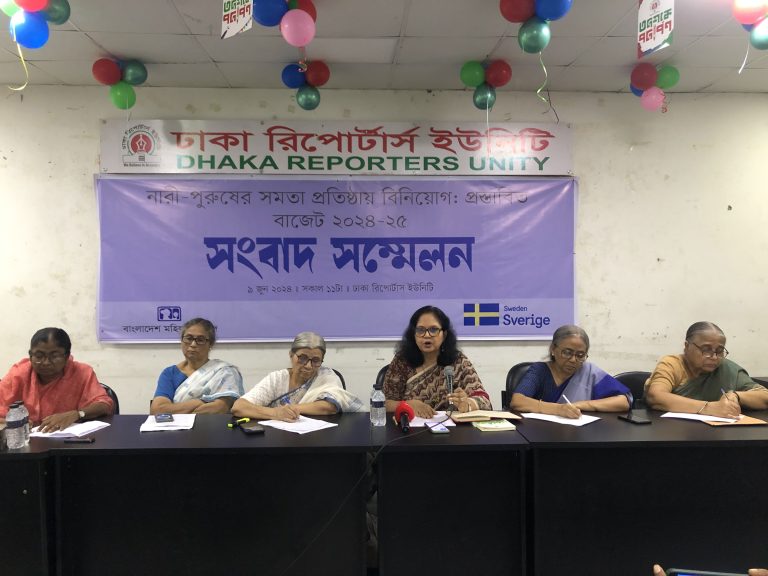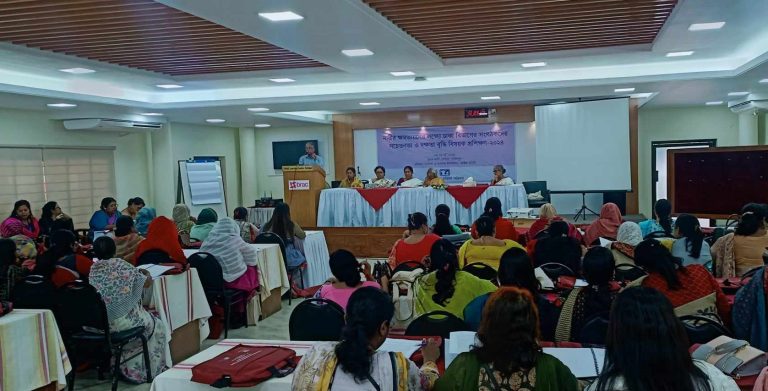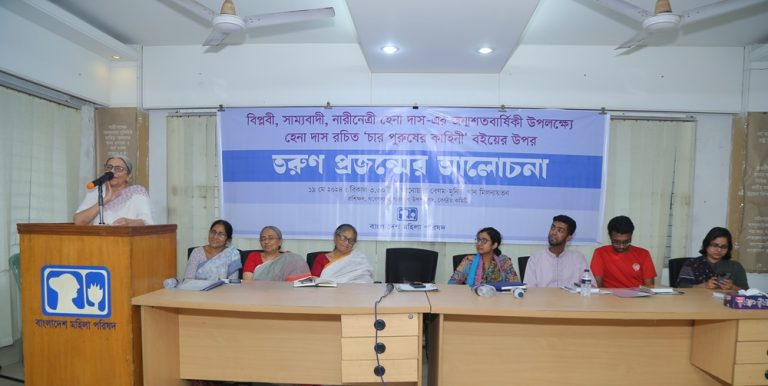In the context of the global slogan of International Women’s Day, 2023, “DigitALL: Innovation and Technology for Gender Equality”, Bangladesh Mahila Parishad (BMP) organized a discussion meeting on “Role of Information and Technology in achieving Gender Equality and Women’s Empowerment” on 21st March 2023 at Anwara Begum Munira Khan Auditorium, Sufia Kamal Bhavan, Segunbagicha, Dhaka.
The meeting was presided over by the president of the organization, Dr. Fauzia Moslem. Lafifa Jamal, Professor, Department of Robotics and Mechatronics Engineering, University of Dhaka; Dr. Nova Ahmed; Professor, Department of Electrical and Computer Engineering, North South University; Gynecologist Professor Samina Chowdhury and A.S.M. Habibur Rahman, Web Developer were present as speakers. The keynote was presented by Dolan Krishna Sheel, Information Technology Officer of BMP.
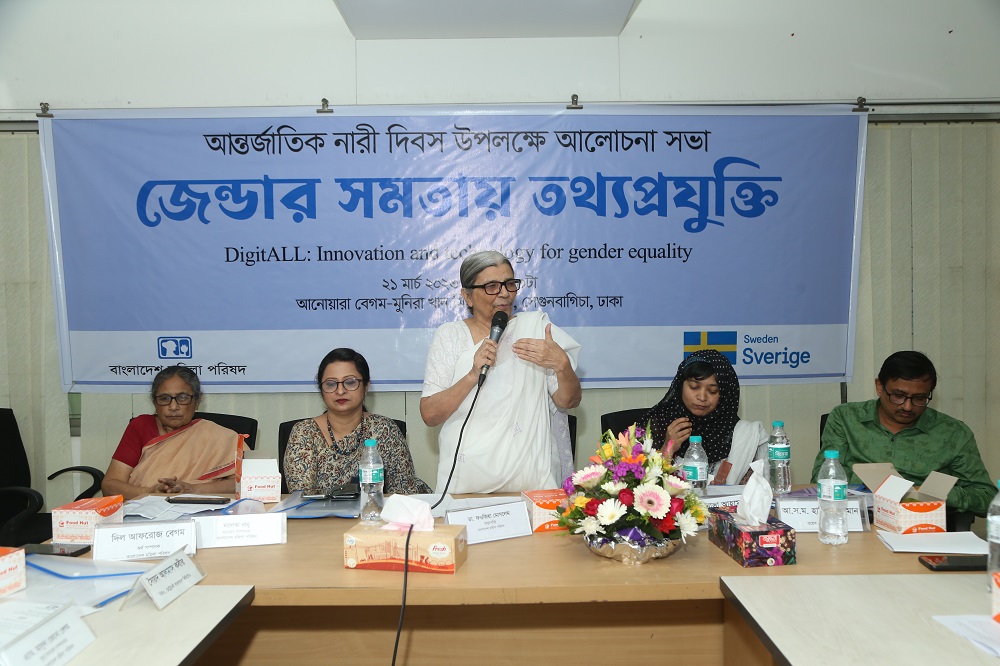
A total of 120 people including the leaders of the organization’s central and Dhaka city committee, Dhaka Central Committee Members, Dhaka University Information Technology Department students, Robotics and Mechatronics Engineering Department students; students of the computer engineering department of the North South University of Bangladesh, BRAC University computer engineering and technology students, journalists of print and electronic media and officers of the organization were present in the meeting.
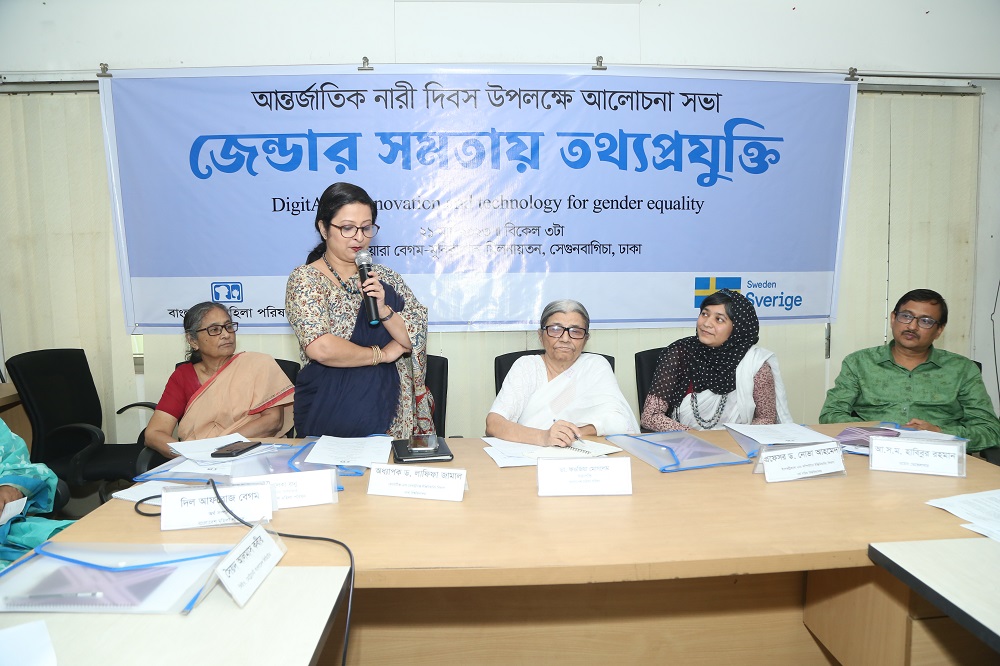
He stated in the keynote paper that, Bangladesh is forwarding in the progress of development through information technology. Women in Bangladesh are playing an effective role in the development. Therefore, to make development sustainable, we have to march with women. Today, information technology is considered as one of the weapons of women’s liberation and gender equality in the domestic and international arena.
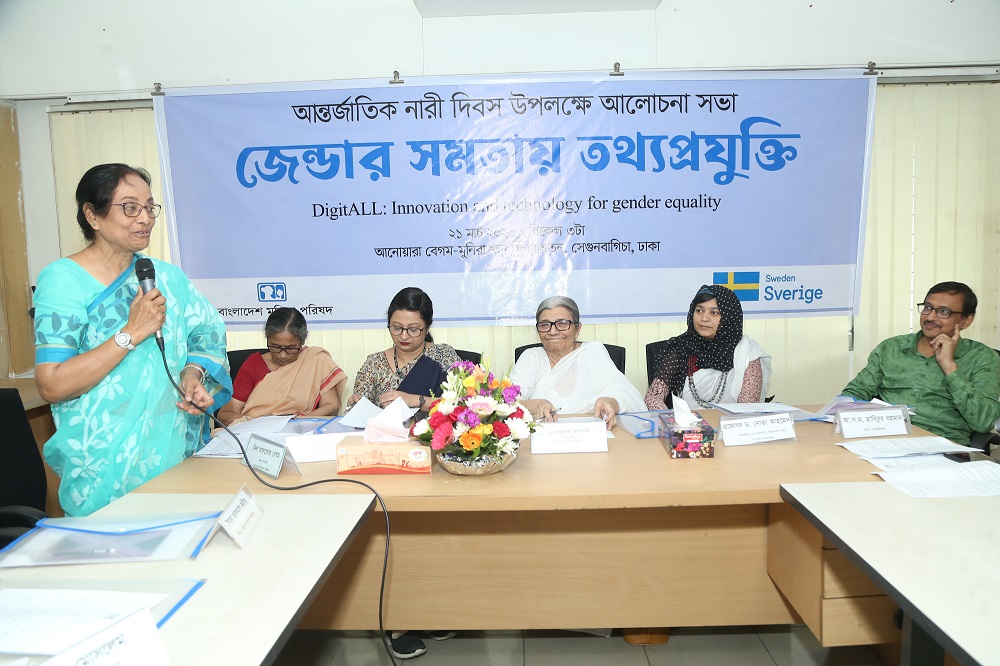
In the speech of the special guest, Gynecologist Professor Samina Chowdhury mentioned that we have been able to serve four lakh women through telecommunication during Covid.
AK Mahbub Zaman, former president of Basis and founder of DataSoft, explained that the fourth industrial revolution and the Covid situation have accelerated the use of information technology. Women’s participation in information technology-related jobs has been low but gradually it is increasing.
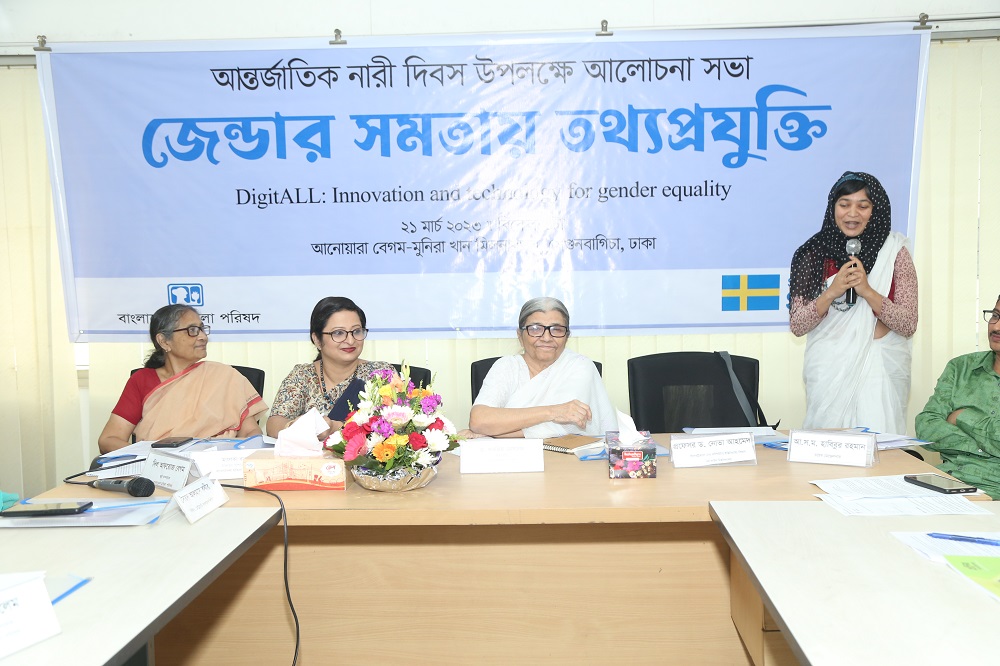
Professor of Electrical and Computer Engineering Department of North South University, Nova Ahmed said that girls are less likely to take information technology education due to social barriers, institutional barriers, and lack of appropriate policies.
Web Developer, A.S.M. Habibur Rahman said, from the experience of working in the international marketplace, it has been seen that job skills are more important than gender recognition. We have seen opportunities for women to participate but their presence is low. We need to find out why women are showing disinterest here.
Maleka Banu, General Secretary of the organization mentioned that we are living in a technology-controlled world. Today’s meeting has been organized to discuss the crisis and potential of technology, how to use technology to establish gender equality, and how to connect women with technology.
The President of Bangladesh Mahila Parishad, Dr. Fauzia Moslem said, Bangladesh Mahila Parishad has been working to establish women’s human rights for five decades. The slogans of the women’s movement change along with the demands, and the actions change as well. Even though women have progressed today, there are still many challenges. By participating in the liberation war, new doors in women’s lives have been opened. When something pulls back women, we have to think about it. Religion is being used as a tool to discriminate against women. We have to work together to establish the role of information technology in preventing violence against women. She urged to utilize the immense potential created through technology.
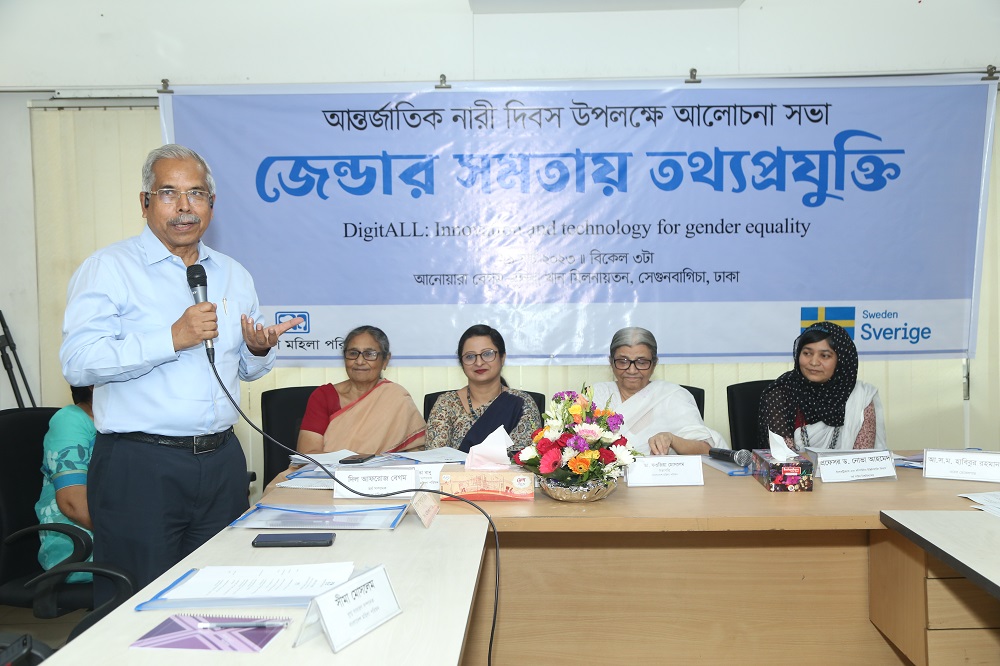
She said to eliminate gender discrimination, the digital world should be safe, accessible, creative, and humane for all men and women.
Recommendations came out from the discussions:
1. Necessary measures need to be taken to remove barriers on the way of achieving SDG’s 5th goal, to ensure the use of information technology for women’s empowerment.
2. Training should be arranged to ensure easy accessibility of computers and IT for mass women.
3. Cyber Support for Women run by Bangladesh Police should be widely promoted from center to grassroots to reach more mass women.
4. The government should provide incentives to encourage the development of women-friendly technology.
5. Internet prices should be reduced.
6. Information technology-related devices should be made readily available.
7. Effective measures should be taken to stop online rumors, misinformation, and lies, and misogynistic, communal, anti-Bangladesh and anti-independence activities and need to bring appropriate punishment.
8. Special measures should be taken to enable women victims of online harassment and gender-based violence to complain and seek redress.
9. Implementation of Pornography Control Act 2012.
10. The personal privacy of the citizens regardless of sex should be ensured.
11. Proper use of digital security law should be ensured to stop violence against women and misogynistic activities through social media.
12. In order to make the young generation gender sensitive, the use of information technology, cyberbullying, and cybercrime should be included in the educational curriculum.

